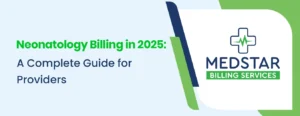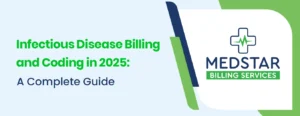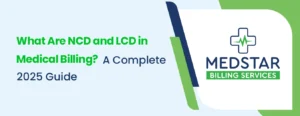Dental billing is quite complex due to a number of factors, and therefore there are more frequent occurrences of errors or mistakes which can cost your dental practice and result the delays in reimbursements, increased administrative burden, and financial loss.
This article provides a detailed but quick insight into the major common mistakes or errors that cost your practice or negatively affect your bottom line. The best thing is that after reading this article, you will also get an idea of what the major tips or strategies are that can help to fix all the errors or mistakes in dental billing practice. So read now!
12 Common Dental Billing Errors that Cost Your Practice
In a complex world of dental billing and coding, any single error or mistake can cost practices a huge amount of money. Moreover, it can cause the disruption of the financial aspects of practice due to increased claim denials or rejections and delays in reimbursements.
Common reasons for mistakes or errors in dental billing
- Failure to stay updated with evolving rules and regulations
- Dental practice is not well-versed in billing and coding guidelines.
- Reduced efficiency in timely locating errors in the billing process
- Decreased efficiency in taking preventive measures on time
However, if all the major mistakes are identified in a timely manner and necessary measures are taken, then you can protect your dental practice and regain financial prosperity. Here are the common mistakes that can financially harm your dental practice:
1: Use of inaccurate CDT code
Coding is an essential step of dental billing, and CDT codes are the standardized codes that are used in documenting and reporting specialized dental procedures. Accuracy in CDT code is directly linked to the accurate flow of submissions. If there is any inaccuracy in these codes, it leads to claim denials or rejections, underpayments, and revenue loss.
Moreover, if the wrong codes are used, then the entire practice has to face major legal consequences, as providers can be penalized due to fraudulent cases. This not only affects the cash flow but also destroys the reputation of a dental practice.
Causes:
- Complexity of CDT codes
- Lack of dental billing experts
- Regular updates or changes in the code
Solution:
- Investment in the training of staff
- Thorough verification of codes
2. Incomplete or Inaccurate patient data
The first crucial step of the dental billing process is the collection of complete patient information to proceed further. If this step is accurate, then there are reduced chances of denials and dental providers get the maximized reimbursements. However, any error in this step can lead to a high rate of denials or rejections. Ultimately, this results in the loss of revenue for dental practices.
Moreover, if any insurance claim is rejected by the insurer, then it also causes an increase in workload, as it requires an efficient claim denial management process. Experts have to identify, resolve the issue and then file the appeals, which in turn causes a delay in collections from insurance networks.
Causes
- Lack of trained staff
- Lack of standardized process
- Human errors
Solution:
Accurate collection of information:
This issue can be effective if information collected from the patients is accurate. On each visit of the patient, make a confirmation of the provided information.
Keep an eye on updates: Secondly, ask them to find out if they have made any alterations or updated their personal information, such as their
- contact number
- employment status
- residential address
Verify insurance information
Other than personal information, make sure to collect and then verify the right insurance information, which includes:
- Member ID number
- Name of Insurance Provider
- Member DOB
- Patient DOB
- Contact number of Insurance
Before every appointment, the accurate verification of insurance information is essential to prevent this error and ensure the optimal cash flow.
Other ways to prevent this error are:
- Using standardized documentation
- Following appropriate guidelines
- Regular audits to find any inaccuracies in documentation
3. Errors in billing and coding
If the billing and coding practices have some errors or mistakes, then your dental practice will face difficulty in maximizing collections. Moreover, it will also raise the administrative burden of your practice.
Why does it happen?
Untrained or inexperienced staff use the incorrect codes to perform coding of dental procedures.
- They utilize the outdated codes.
- Upcoding
Solution:
- Dental billers and coders should be trained and certified.
- Accurate assignment of appropriate codes
- Early identification and resolution of billing and coding errors
4. Workload stress or pressure on the billing team
Handling administrative tasks and the billing process at the same time is not an easy job. Providers have to work hard in keeping up with the requirements and completing each aspect of their practice management with accuracy. This not only requires efforts but also costs time, so the entire billing team has to face pressure, which then causes the:
- High occurrence of billing errors
- Increased claim denials
- Low quality of patient experience
Causes
- Complexity in handling tasks
- Lack of resources and support
Solution:
- Automation of tasks
- Use of standardized procedures
- Required support and training
5. Delay in claim submission & follow-up
Timely claim submission is a key to constant or uninterrupted cash flow for dental practices. Most dental practices do not have efficient operating systems that timely submit the insurance claims to the corresponding networks. Moreover, the regular follow-ups are also lacking, which also exerts a negative impact on the flow of revenue.
Causes
- Lack of accuracy in documentation
- Issues in claim submission
- Issues with eligibility verification
Solution
Dental practices should have standardized operating procedures. In addition, within 24 hours of treatment, the submission of insurance claims should be completed. Moreover, all the codes should be properly analyzed before final submission. Likewise, there should also be a regular and controlled follow-up on the submitted claims. This helps in the timely identification of errors if they occur and then resolves them accordingly.
6. Late claim filing
Claim filing involves the requesting of payment or collection from insurance networks. The accurate and rapid claim filing is also essential to maintain the cash flow of dental practices. Most of the insurance plans have distinct requirements for ‘’on-time claim filing. However, if the claim is not rejected and accepted by the insurance network, then late filing should not be favored, as it can result in a delay in reimbursements.
Solution
- Claim filing must be done within a working day.
- The process and the associated protocol for filing claims should be efficient and verified.
- Regular monitoring or analysis of the outstanding insurance aging report
7. Issues in claim forms
Claim forms are specialized request forms for compensation from insurers. Insurance networks deeply consider the claim forms for the verification of provided services to patients, and also for processing the payments. Any sudden alteration in the claim forms can lead to major negative consequences. Insurance networks immediately detect the alterations in claim forms and consider them as an attempt to manipulate dates or make certain changes in other information or inflate service costs. All these things are considered illegal, and therefore, dental practices have to face major penalties. Moreover, errors in the system can also lead to the denials or rejections of claims.
Causes
- Errors in coding
- Inaccurate data
- Issues in insurance eligibility verification
Solution
- Unintentional errors
- Errors caused intentionally to gain financial profit.
8. Waiver of Deductibles or Co-payments
If providers are involved in the routine waiving of co-payments or deductibles, then it is also considered a mistake that can result in potential consequences. Co-payments and deductibles are the payments which are made by patients make to insurers for specialized dental care services.
Why is it an issue?
- As it is considered illegal, practices have to face many legal issues.
- Dental practices also obtain an extra or unfair benefit over their competitors.
- It is considered insurance fraud.
- It can lead to overbilling of the insurance network.
- It can cause the strict violation of both federal and state laws or regulations.
Penalties for waiving copayments or deductibles
- Suspension of license
- Heavy fines
- Criminal charges
Causes
- Financial hardship of patients
- Patient assistance programs
Solution:
- Educate the staff regarding the ethical and legal considerations in billing.
- Regular audits
9. Lack of supporting documentation with claims
If you forget to attach the relevant and supporting documents with the claim form, then your dental practice will face major issues. By considering the documents, insurance networks can determine whether the procedure is justified or not. If it fails to do so, then it can cause the:
- Rejection of claims
- Delay in Reimbursements
Major attachments include:
- Clinical notes
- X-rays
- Intraoral photos
- Radiographs
Solution:
- Familiarity with each distinct supporting documents for different procedures and services
- Using deleted or expired codes
The American Dental Association has the responsibility to annually update the Current Dental Terminology (CDT) codes. They do the following things:
- Revision of existing codes
- Addition of new codes
10. Use of expired or outdated codes
If the dental practice is unknowingly making use of deleted codes, then it can result in multiple issues. There are higher chances of remaining unrecognized by the insurance payors.
Solution
- Regularly updating the CDT codes.
- Trained experts
11. Lack of accurate insurance verification
Insurance verification is a significant process that involves the confirmation of patients’ insurance coverage and benefits before the rendering of services. If the gathered information is inaccurate, then it can lead to denials and revenue loss.
Causes
- Inefficient verification of coverage details
- Miscommunication between providers and insurers
Solution
- The collection of insurance information should be accurate.
- There should be regular checks and balances to prevent errors
12. Miscalculating Out-of-Pocket Costs
It is also a common error or mistake that can affect the finances of a dental practice.
Why it’s a mistake:
- Patients exhibit a lower satisfaction rate if they have to pay higher charges than the estimated amount.
- It can also affect the processing of an insurance claim
- If undercharging occurs, it leads to the unpaid balance, while on the other hand, overcharging leads to administrative tasks and refunds. Both situations can result in revenue loss.
Solution
- Accuracy in insurance verification
- Clear, effective, and transparent communication
Outsourcing Dental billing to a professional Dental billing company can be a game-changer
Whether you are managing a small or large dental care practice, navigating the common dental billing challenges is now easier with us. MedStar Billing Services is a reliable and transparent dental billing company that offers tailored dental billing solutions for each dental practice. We have a team of professional, skilled, and board-certified dental billers and coders who can provide you with the essential tools and strategies that will help your practice prevent all the common mistakes or errors that can harm your practice’s financial status. So if you want to transform your dental practice that never allows any mistake or error to hold back the practice, then MedStar should be your ideal choice.
Final Remarks
Dental practices that are devoid of any error or mistake can effortlessly generate increased reimbursements. However, the presence of any single error or mistake can cost the practice time and money. Most common errors in dental billing include billing and coding errors, inaccurate and inefficient patient information, inefficient insurance verification, lack of pre-authorization, use of expired or deleted codes, waiving co-payments and deductibles, unnecessary stress on billing team, miscalculating out of pocket cost, using inaccurate CDT codes and late claim filing are the major and the most common mistakes that can disrupt the financial status of dental practice. But with the help of the right and on-time strategies, all these billing mistakes or errors can vanish, and dental care providers can obtain an elevated rate of reimbursements without any interruption.








